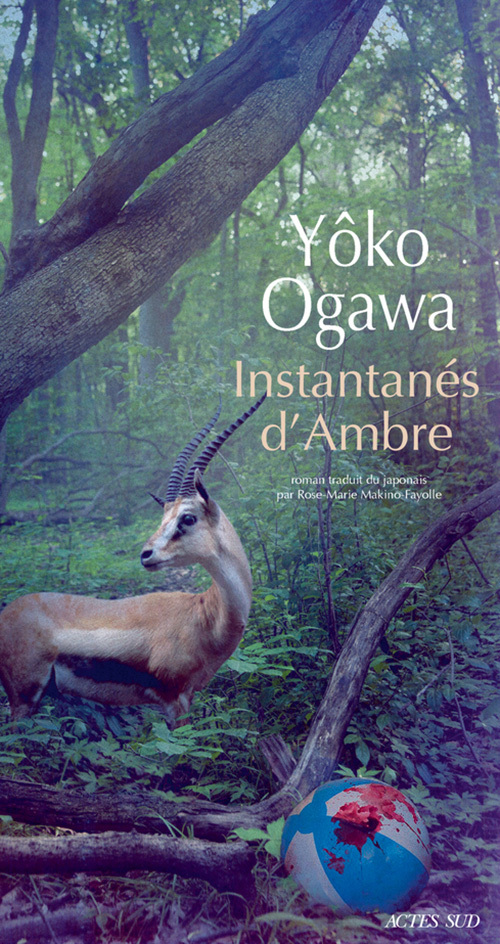
Une mère demande à ses enfants d’oublier leur prénom. Ils doivent, dit-elle, ne plus jamais le prononcer ni même y penser, mais en choisir un autre afin d’échapper au danger qui menace leur vie. Dans une villa ayant appartenu à leur père, au milieu d’un vaste jardin cerné de hauts murs, les trois enfants vont passer un temps infini, enfermés, coupés du monde mais heureux. Leurs nouveaux prénoms sont issus d’une encyclopédie des sciences : des noms de pierres choisis au hasard – prénoms sous le signe desquels ils reconstruisent leur identité. Arbres immenses, ruisseau ténu et chants d’oiseaux : les saisons passent, les vêtements cousus par leur mère sont trop petits, les ailes de coton et de laine qu’elle a fixées dans leur dos ne les gênent pas. Opale, Ambre et Agate grandissent en harmonie mais la dissonance vient de l’extérieur, un colporteur entre dans le jardin. Un livre majeur, une puissante métaphore de la résilience de l’enfance, cette capacité à préserver l’amour filial en tenant la peur à distance. Ode à l’imaginaire – traversé comme toujours dans l’œuvre d’Ogawa par la présence animale, muséale et musicale –, ce roman se place sous le signe des pierres et tout particulièrement de l’ambre, dans lequel se loge la trace de ce qui n’est plus.
Author

Yōko Ogawa (小川 洋子) was born in Okayama, Okayama Prefecture, graduated from Waseda University, and lives in Ashiya. Since 1988, she has published more than twenty works of fiction and nonfiction. Her novel The Professor and his Beloved Equation has been made into a movie. In 2006 she co-authored „An Introduction to the World's Most Elegant Mathematics“ with Masahiko Fujiwara, a mathematician, as a dialogue on the extraordinary beauty of numbers. A film in French, "L'Annulaire“ (The Ringfinger), directed by Diane Bertrand, starring Olga Kurylenko and Marc Barbé, was released in France in June 2005 and subsequently made the rounds of the international film festivals; the film, some of which is filmed in the Hamburg docks, is based in part on Ogawa's "Kusuriyubi no hyōhon“ (薬指の標本), translated into French as "L'Annulaire“ (by Rose-Marie Makino-Fayolle who has translated numerous works by Ogawa, as well as works by Akira Yoshimura and by Ranpo Edogawa, into French). Kenzaburō Ōe has said, 'Yōko Ogawa is able to give expression to the most subtle workings of human psychology in prose that is gentle yet penetrating.' The subtlety in part lies in the fact that Ogawa's characters often seem not to know why they are doing what they are doing. She works by accumulation of detail, a technique that is perhaps more successful in her shorter works; the slow pace of development in the longer works requires something of a deus ex machina to end them. The reader is presented with an acute description of what the protagonists, mostly but not always female, observe and feel and their somewhat alienated self-observations, some of which is a reflection of Japanese society and especially women's roles within in it. The tone of her works varies, across the works and sometimes within the longer works, from the surreal, through the grotesque and the—sometimes grotesquely—humorous, to the psychologically ambiguous and even disturbing.